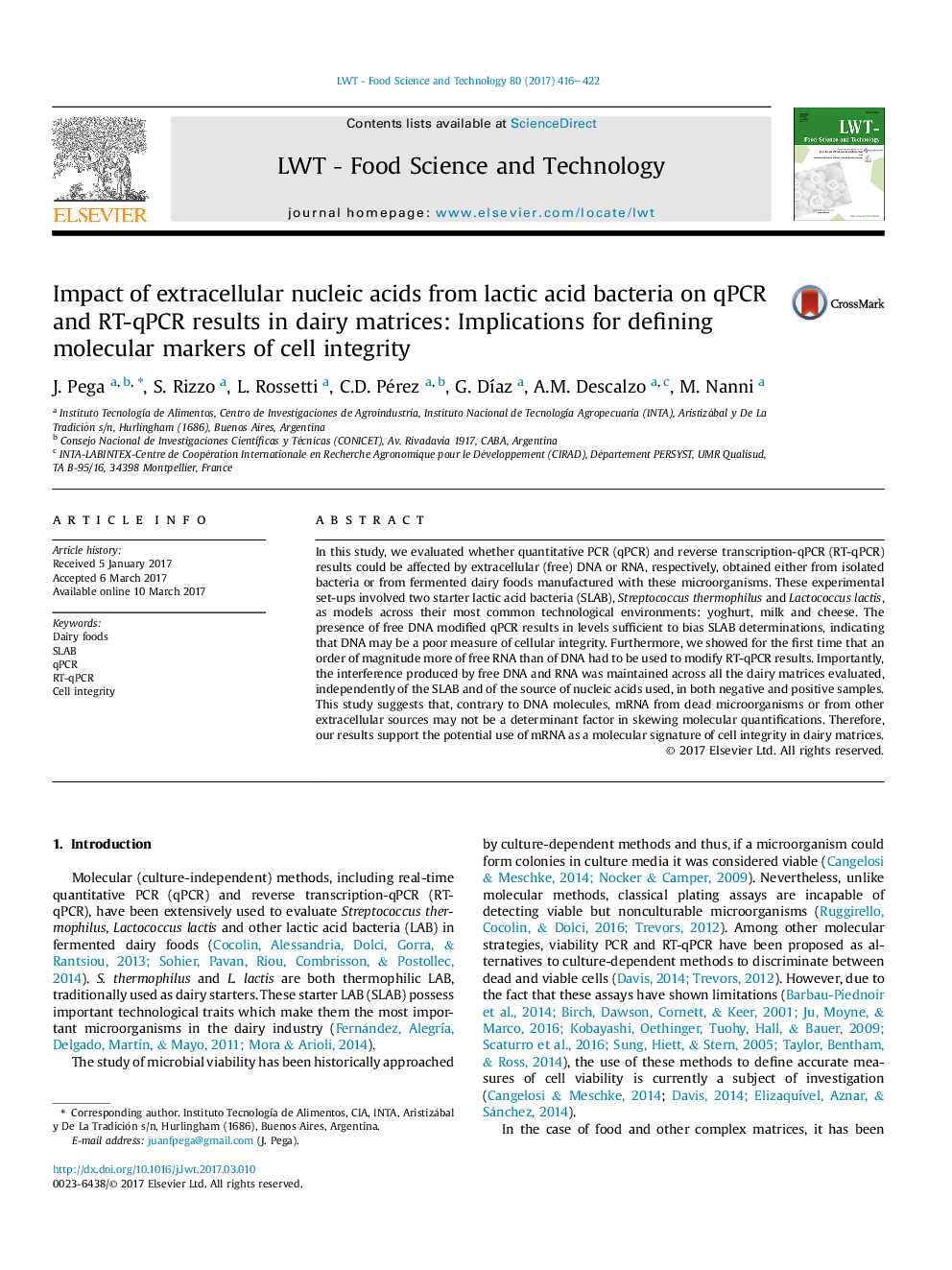| کد مقاله | کد نشریه | سال انتشار | مقاله انگلیسی | نسخه تمام متن |
|---|---|---|---|---|
| 5768564 | 1628518 | 2017 | 7 صفحه PDF | دانلود رایگان |

- We quantified the impact of extracellular (free) nucleic acids on qPCR and RT-qPCR results.
- Streptococcus thermophilus and Lactococcus lactis were evaluated in dairy samples.
- Free DNA modified qPCR results in levels sufficient to bias quantifications.
- Ten times more of free RNA than of DNA had to be used to modify quantifications.
- Bacterial mRNA detection may be used as a molecular signature of cell integrity.
In this study, we evaluated whether quantitative PCR (qPCR) and reverse transcription-qPCR (RT-qPCR) results could be affected by extracellular (free) DNA or RNA, respectively, obtained either from isolated bacteria or from fermented dairy foods manufactured with these microorganisms. These experimental set-ups involved two starter lactic acid bacteria (SLAB), Streptococcus thermophilus and Lactococcus lactis, as models across their most common technological environments: yoghurt, milk and cheese. The presence of free DNA modified qPCR results in levels sufficient to bias SLAB determinations, indicating that DNA may be a poor measure of cellular integrity. Furthermore, we showed for the first time that an order of magnitude more of free RNA than of DNA had to be used to modify RT-qPCR results. Importantly, the interference produced by free DNA and RNA was maintained across all the dairy matrices evaluated, independently of the SLAB and of the source of nucleic acids used, in both negative and positive samples. This study suggests that, contrary to DNA molecules, mRNA from dead microorganisms or from other extracellular sources may not be a determinant factor in skewing molecular quantifications. Therefore, our results support the potential use of mRNA as a molecular signature of cell integrity in dairy matrices.
Journal: LWT - Food Science and Technology - Volume 80, July 2017, Pages 416-422